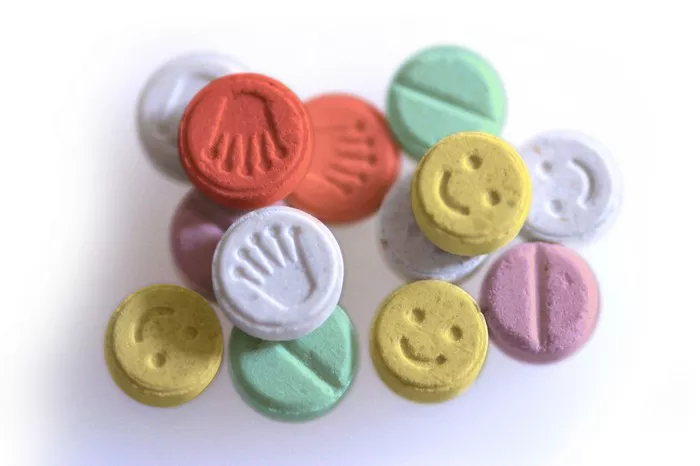Caring for a newborn who has caught a cold can be a stressful experience for any parent. Newborns have delicate immune systems, making them more vulnerable to respiratory infections such as colds. While it’s natural to feel concerned, there are safe and effective remedies that can help alleviate your baby’s symptoms and support their recovery. In this comprehensive guide, we’ll explore what newborns can take for a cold, offering expert advice and practical tips to help you navigate this challenging time with confidence.
Understanding Colds in Newborns:
Colds, also known as viral upper respiratory infections, are common among newborns, particularly during the first few months of life. These infections are typically caused by viruses such as rhinovirus, respiratory syncytial virus (RSV), and influenza virus. Newborns are susceptible to colds due to their immature immune systems and exposure to germs from caregivers, siblings, and the environment.
Common Symptoms of a Cold in Newborns
Stuffy or runny nose
Sneezing
Coughing
Fussiness or irritability
Difficulty sleeping
Decreased appetite
Mild fever (in some cases)
What Can Newborns Take for a Cold: Expert Recommendations
When it comes to treating colds in newborns, it’s essential to prioritize gentle and safe remedies that are appropriate for their age and development. While over-the-counter medications are generally not recommended for infants under six months old, there are several safe and effective strategies you can try to help relieve your baby’s symptoms:
1. Saline Nasal Drops or Spray
Saline nasal drops or spray can help loosen mucus and clear your newborn’s congested nasal passages, making it easier for them to breathe. Administer a few drops of saline solution into each nostril, followed by gentle suction using a bulb syringe or nasal aspirator. Saline drops are safe and gentle for newborns of all ages.
2. Nasal Aspirator
Using a nasal aspirator can help remove excess mucus from your baby’s nose and provide relief from congestion. Choose a bulb syringe or nasal aspirator specifically designed for newborns, and use it gently to avoid causing discomfort or injury to your baby’s delicate nasal passages.
3. Humidifier
Running a humidifier in your baby’s room can help add moisture to the air and ease nasal congestion. Opt for a cool-mist humidifier to prevent accidental burns, especially if your baby is mobile and curious. Be sure to clean the humidifier regularly to prevent the buildup of mold and bacteria.
4. Elevating the Head
Elevating your newborn’s head slightly during sleep can help reduce nasal congestion and make breathing easier. You can do this by placing a rolled-up towel or blanket under the head of the crib mattress to create a gentle incline. However, always ensure that your baby’s sleeping environment is safe and free from suffocation hazards.
5. Breast Milk or Formula
Breast milk or formula provides essential nutrients and hydration for your newborn, helping to support their immune system and promote overall health. Offer your baby frequent feedings to keep them hydrated and nourished, as adequate hydration can help loosen mucus and soothe a sore throat.
6. Extra Rest and Comfort
Provide your newborn with plenty of rest and comfort to help them recover from their cold. Create a calm and soothing environment, dimming the lights, playing soft music, and cuddling your baby to help them feel safe and secure. Adequate rest is essential for your baby’s immune system to fight off the virus and promote healing.
When To Seek Medical Attention
While most colds in newborns are mild and resolve on their own with home care, there are instances where medical attention may be necessary. Contact your pediatrician if your newborn experiences any of the following symptoms:
Difficulty breathing or rapid breathing
Persistent fever (rectal temperature of 100.4°F or higher)
Wheezing or noisy breathing
Refusal to eat or drink
Signs of dehydration (e.g., dry mouth, sunken fontanelle)
Unusual lethargy or irritability
Your pediatrician can evaluate your baby’s symptoms and provide guidance on whether further evaluation or treatment is needed based on their age and medical history.
Preventing the Spread of Colds in Newborns
Preventing the spread of colds is essential for protecting newborns, particularly those who are too young to be vaccinated against certain viruses. Here are some measures you can take to reduce the risk of colds in newborns:
Practice good hand hygiene: Wash your hands frequently with soap and water, especially before handling your baby or preparing their food.
Limit exposure to sick individuals: Avoid close contact with individuals who are sick, especially if they have symptoms of a cold.
Keep your newborn away from crowded or poorly ventilated areas: Minimize your baby’s exposure to crowded places where viruses can easily spread.
Encourage vaccination: Ensure that family members and caregivers are up-to-date on their vaccinations, including the flu vaccine, to reduce the risk of transmitting viruses to your newborn.
Conclusion:
Caring for a newborn with a cold can be challenging, but with the right knowledge and strategies, you can help alleviate your baby’s symptoms and support their recovery. By following expert recommendations and providing gentle and supportive care, you can help your newborn feel more comfortable and promote healing. Remember to monitor your baby’s condition closely and seek medical attention if needed. With your love and attention, your little one will soon be back to their happy and healthy self.


